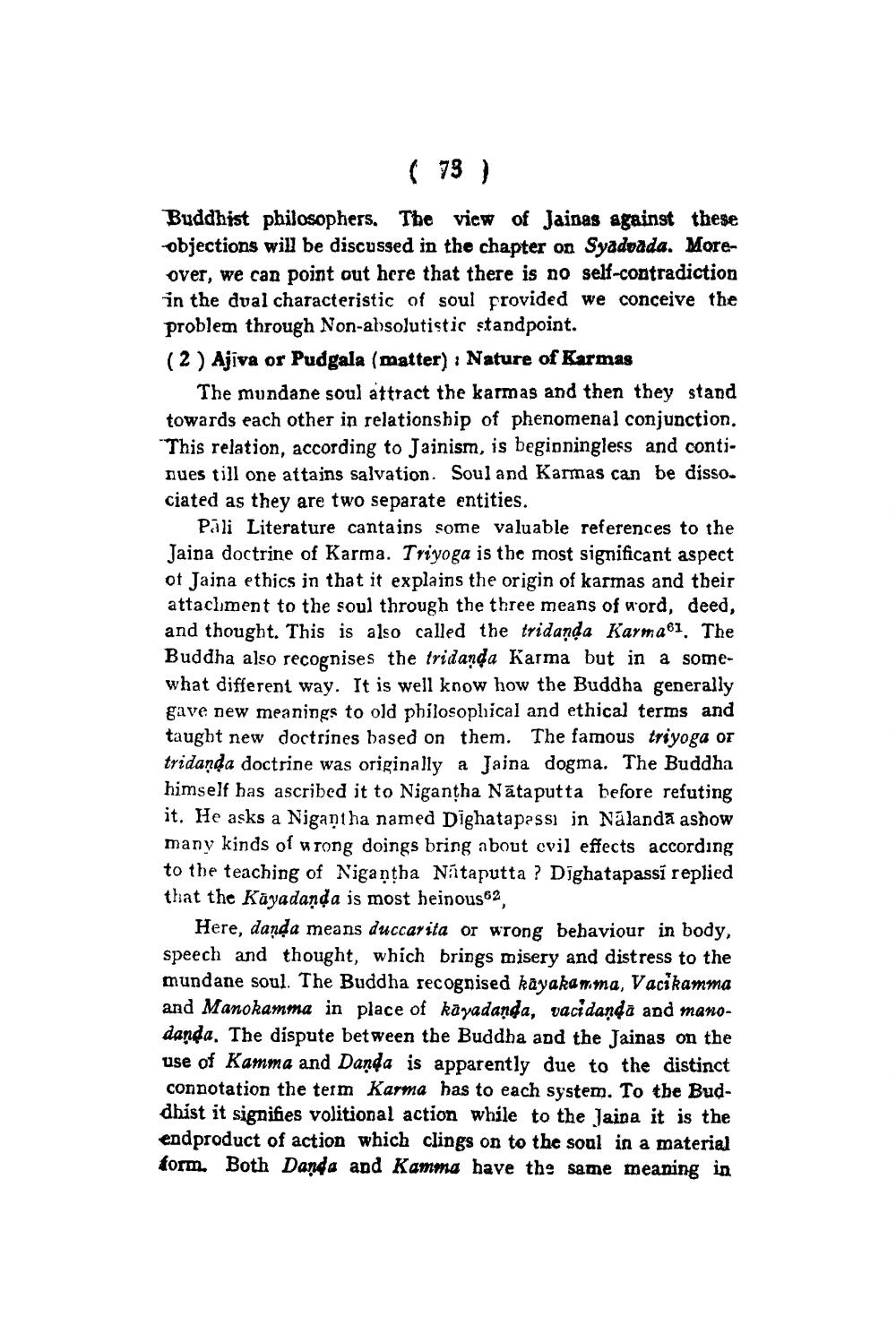________________
( 73 )
Buddhist philosophers. The view of Jainas against these objections will be discussed in the chapter on Syadvada. Moreover, we can point out here that there is no self-contradiction in the dual characteristic of soul provided we conceive the problem through Non-absolutistic standpoint.
(2) Ajiva or Pudgala (matter): Nature of Karmas
The mundane soul attract the karmas and then they stand towards each other in relationship of phenomenal conjunction. This relation, according to Jainism, is beginningless and continues till one attains salvation. Soul and Karmas can be disso. ciated as they are two separate entities.
Pali Literature cantains some valuable references to the Jaina doctrine of Karma. Triyoga is the most significant aspect of Jaina ethics in that it explains the origin of karmas and their attachment to the soul through the three means of word, deed, and thought. This is also called the tridanda Karma1. The Buddha also recognises the tridanda Karma but in a somewhat different way. It is well know how the Buddha generally gave new meanings to old philosophical and ethical terms and taught new doctrines based on them. The famous triyoga or tridanda doctrine was originally a Jaina dogma. The Buddha himself has ascribed it to Nigantha Nataputta before refuting it. He asks a Nigantha named Dighatapassi in Nalanda ashow many kinds of wrong doings bring about evil effects according to the teaching of Nigantha Nataputta? Dighatapassï replied that the Kayadanda is most heinous62,
Here, danda means duccarita or wrong behaviour in body, speech and thought, which brings misery and distress to the mundane soul. The Buddha recognised kayakamma, Vacikamma and Manokamma in place of kayadaṇda, vacidanda and manodanda. The dispute between the Buddha and the Jainas on the use of Kamma and Danda is apparently due to the distinct connotation the term Karma has to each system. To the Buddhist it signifies volitional action while to the Jaina it is the endproduct of action which clings on to the soul in a material form. Both Danda and Kamma have the same meaning in




